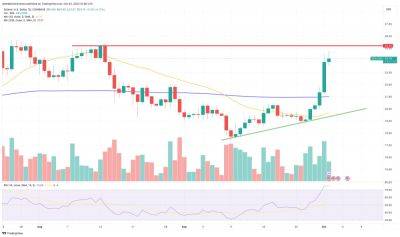China's domestic tourism is finally back to pre-pandemic levels
BEIJING — China's big «Golden Week» holiday saw domestic tourism rebound to around pre-pandemic levels, while overseas travel had yet to fully recover, according to official figures.
Those numbers for the eight-day holiday that ended Friday also came in lower than the government had initially predicted.
Golden Week domestic tourism revenue was 753.43 billion yuan ($103.24 billion) — a 1.5% increase from that in 2019, according to China's Ministry of Culture and Tourism. The number of domestic tourist trips rose by 4.1% from 2019 to 826 million during the latest eight-day holiday, the ministry said.
Both figures were lower than what Chinese state media had earlier cited the ministry as predicting: 896 million trips and 782.5 billion yuan in domestic tourism revenue.
However, the final tourism revenue figure still marked a rebound to 2019 levels for the first time since China ended its Covid-19 restrictions late last year, Morgan Stanley's Chief China Economist Robin Xing and a team pointed out in a note Friday.
They added that on a per capita basis, spending returned to 98% of 2019 levels, much higher than the 85% figure seen during holidays earlier in the year.
«This is likely due to an extra-long Golden Week holiday (eight days vs. seven usually), which encouraged long-distance travel and thus boosted average spending,» the Morgan Stanley analysts said.
This year, the traditional Chinese Mid-Autumn Festival and the Oct. 1 National Holiday were close enough that Beijing declared an eight-day holiday from Friday, Sept. 29 to Friday, Oct. 6, the official dates of this year's Golden Week.
That meant the subsequent Saturday and Sunday were officially working days, but some businesses did not resume work until Monday.
In a
Read more on cnbc.com






















